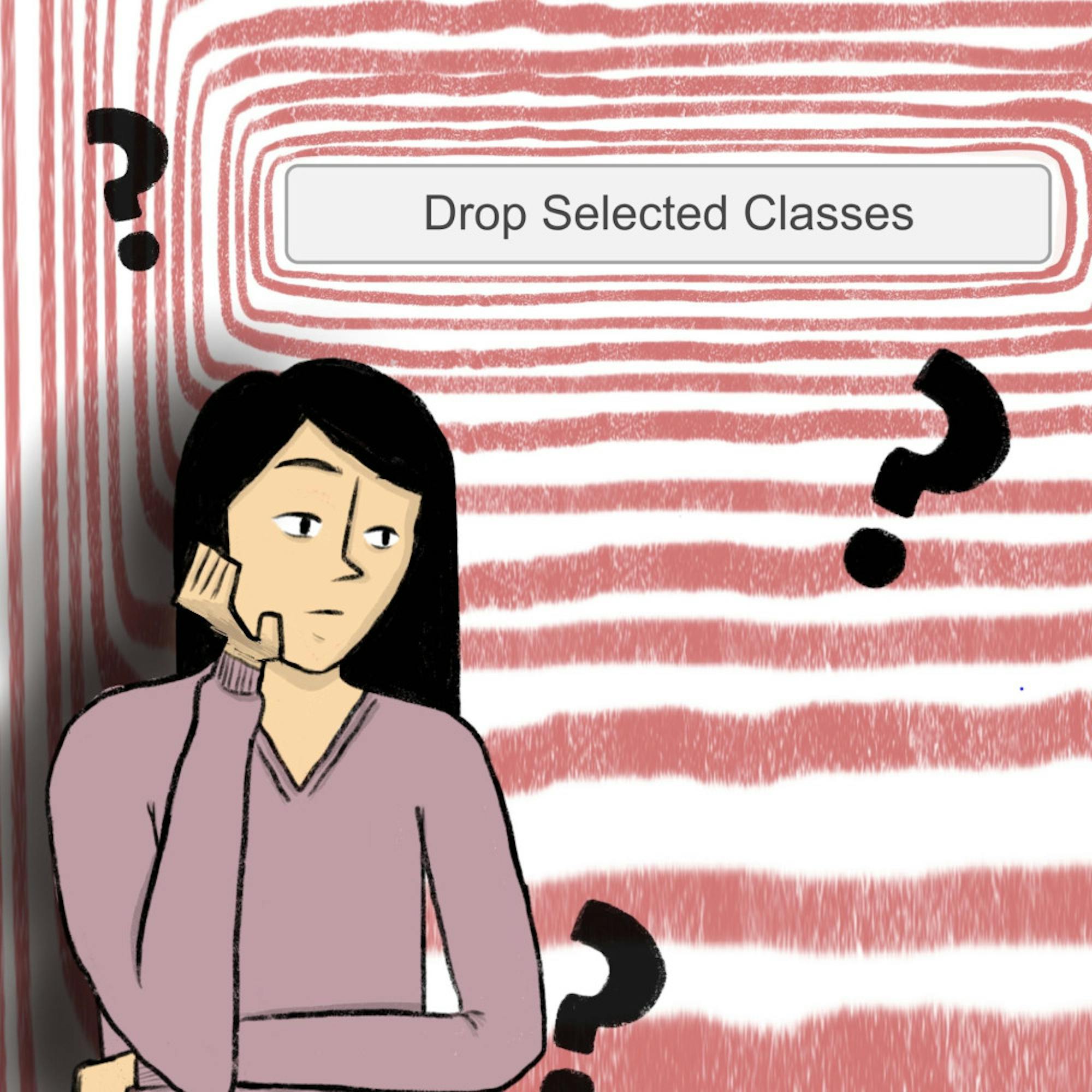Last week, Tufts students returned to campus and began their spring semester courses, settling back into the rhythm of academic work and on-campus commitments. During the semester’s start, some students look to add or drop courses and reconfigure their schedules to better suit their interests and academic abilities. Aware of their academic passions and well-seasoned in the exercise of building schedules, upperclassmen are likely able to make these decisions with relative ease while first-years require additional time to gauge whether or not they should drop a course; they have little experience in course selection and have not yet had the chance to fully explore their academic interests.
Despite this experience of first-year students, the spring drop-deadline was changed this year to be the same for all undergraduates based on a recommendation from the Mental Health Task Force: first-years now must drop classes by Feb. 19. The recommendation stated that the previous late deadline, the 10th week of the semester, may have generated additional stress, with students pushing themselves to stay in courses that they may not be able to successfully complete. As such, the earlier drop-deadline seeks to motivate students to make choices about their classes and seek help sooner. Although this reasoning holds some validity, the university did not consider the similar concerns and other disadvantages of an earlier first-year drop deadline. In order to allow first-years the flexibility to engage with the breadth of a liberal arts curriculum while still considering the recommendations of the Mental Health Task Force, Tufts should change the first-year drop-deadline to a middle ground between the past and current spring drop-dates: mid-March before spring break.
During the fall semester, first-year students were offered a 10-week period to drop classes without record of enrollment, enabling first-years to develop and explore new interests without sacrificing their mental health as they test their capabilities in a university environment.
First-year Rachel Feldman experienced these benefits, taking advantage of the extended deadline and dropping her Introduction to Philosophy class at the end of October.
“The later deadline gave me a concrete idea of the workload and how I’d perform in the class, which ultimately led to an informed decision to drop,” said Feldman.
With the ability to experience the class for a few months prior to dropping, she was not forced to remain in a class that did not suit her well or deal with the pressure of figuring out if she should drop earlier in the semester without the knowledge to make an informed decision, which causes unneeded stress especially for first-years who are getting used to the pressure of college life.
As Feldman experienced, a later drop-deadline allows students to accurately assess whether they can succeed in a course. For some, the difficulty of a course does not increase linearly throughout the semester; a student who struggles during the third week may find themselves comfortably settled by the sixth week, having developed better strategies to learn the material. The opposite may also hold true; students who find they can handle the first three weeks of a course may encounter unforeseen challenges later, and the longer drop-deadline serves as an effective safety net.
Reflected in the values of its curriculum, Tufts promises to provide students with the opportunity to develop new interests through trying different classes unrelated to their previous interests, in particular during the first year of college. The extended drop-deadline achieves this mission, incentivizing students to step out of their comfort zone and try new things because they know they can drop the class if needed.
When asked how her situation would have changed with an earlier drop-deadline, Feldman said, “I probably wouldn’t have taken philosophy at all.”
If Feldman had never taken philosophy, she would have never known if the subject interests her; although she ultimately did not discover a new passion, the extended drop-deadline gives the opportunity to take classes that students would not normally take and thus allows many students to discover new interests that they would not have had otherwise.
By changing the drop-deadline to a middle ground between the previous and current spring drop-deadlines, Tufts would pay respect to these benefits of a later deadline while still acknowledging the earlier recommendation of the Mental Health Task Force; Tufts must do so in order to fully address the needs of its first-year students. In this form, Tufts more holistically considers mental health in context with the advantages of a later drop-deadline at the heart of a Tufts education: academic and self-exploration.
Editorial: Tufts must find a middle ground with the spring first-year drop-deadline






